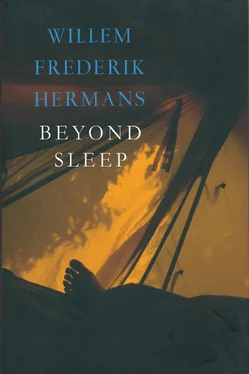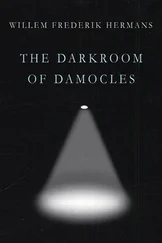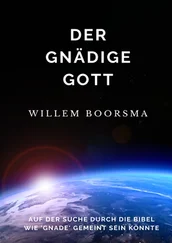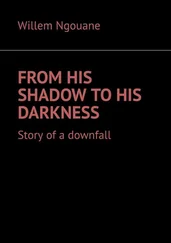‘Why a god? Why complicate things with a being no-one has ever laid eyes on? God’s just a word, it means nothing.’
‘It means: he who created everything.’
‘Do me a favour! It’s so much simpler to assume that man created everything, if only because we know what the word “ man” stands for. That still leaves us with the question of who created man, but that doesn’t matter, because the question of who created god remains unanswered: even the greatest theologians don’t know. So it’s simpler and less bogus if we skip the whole god routine and say that everything is man-made. Proof of this will come in due course. The signs are hopeful: all mythologies, after all, operate between two opposite poles. One is the beginning, the creation, and the other is total ruin: Ragnarok, the Twilight of the Gods, the Apocalypse. Well, the end of the world is at our fingertips as we speak. So why not creation, too? Einstein seeing God as a maths teacher! Think of it! God as an omniscient mathematician, physicist, chemist, biologist! Hardly anyone seems to have noticed how appalling the implications are. Because what kind of god would this be? A god who one day thinks up a set of complicated problems, much as a schoolmaster. The sum of these problems is the cosmos. Into this cosmos he introduces a being called man, who is ignorant. Then he settles down at his lectern to see how his pupils progress. Well! They refuse point-blank to do any homework! They go to bed with each other without realising that children will be the result, they club each other to death and eat each other up. It takes them thousands of years to come up with a language, and several more to develop a script. Then God becomes wary, and quickly brings out a book containing all the wrong answers. He sits back and watches as a generation is devastated by infectious diseases, for which the subsequent generation discovers a remedy. Ether had been in existence for three centuries before its anaesthetic properties were discovered — something God omitted to reveal in his Bible. Moreover, until then, if your leg got blown off in battle, the stump would be dipped in boiling oil. God sniffed up the stink of burning flesh without batting an eyelid. He didn’t care when a few million old women were burnt at the stake as witches, he just smiled. He let cholera, typhoid and the plague wipe out entire cities before permitting the microscope to be invented and consequently the germs of disease to be unmasked. In short, man is der ewig Betrogene des Universums , as they say in German. The eternal loser in the Universe! It’s a favourite expression of mine. Not a day goes by without me thinking of it. Because at that school run by the creator even the best pupils fail their exams. God gives very low marks. A weird notion of God, that is. A notion we can clearly do without. God may have had some meaning for primitive peoples who believed things would always remain the same. But for us, who are continually changing the world, each new discovery offers further proof of our creative potential. The sun is a huge thermonuclear reactor and the brain a computer miniaturised to the extreme. What will this add up to in the long run? To the conclusion that we ourselves are the creators of the universe.’
‘But then it is strange that not one of those creators left behind an autobiography, no?’ Mikkelsen says.
‘Even if it isn’t historically accurate we’ll be able to prove it eventually, and that’s what counts. Dinosaurs didn’t write autobiographies either, but we have geologists to tell us how they lived. There may have been races of humans in the past who were technologically more advanced than we are — but our descendants will catch up with them in a few million years. You mark my words! Rocks, organisms, the sun, all man-made in gigantic laboratories.’
‘So where did the laboratories come from?’
‘I know it’s hard to prove I’m right, but it’s even harder to prove I’m wrong. Look. Time is not a constraint. It may not be billions of years since it happened, but billions raised to the billionth power. As long ago as you like. It is impossible to conceive of time having a starting point. Claims to the contrary are by definition nonsensical. If infinite numbers can go on for ever, so can time. Everything could have happened before, and I mean literally everything . All this stuff I’ve been saying about men making things in lab oratories is nothing compared to all the other things that must have been going on without our knowing anything about it, at least not yet.’
Mikkelsen says: ‘But if that is how you see it, there must be people living on other planets, in other galaxies even.’
‘Why shouldn’t there be?’
‘Well, if such people existed, or still exist, they would have made far more progress in space travel than we have.’
‘Yes. So what?’
‘Don’t you think it a bit strange, then, that no geological stratum predating the Tertiary has been found to contain a trace of human existence, not a single arrowhead, not an axe, never mind a rocket fuselage or a transistor belonging to a UFO commander?’
‘Aren’t you listening? I’m talking about everything being made by man — radiolariae, brachiopods, archeopteryx, tree ferns, the lot.’
‘But they are almost identical to the plants we have nowadays, and we know for a fact that we did not make them.’
Qvigstad draws his heels under himself, holds out his arms and stands up in one fluid movement.
‘Siamese twins,’ he says, ‘have babies with two navels. Did you know that?’
Arne and I break into laughter. Mikkelsen gives a look as if he is filing this away in his mind along with all the other wisdom he has been hearing.
Curious as to why all Arne’s possessions look so shabby, I asked him last night if he gets on well with his father.
My question puzzled him:
‘Don’t you?’
‘My father died when I was seven.’
‘You hardly knew him, then.’
‘No, but I suppose I loved him dearly. Sometimes I think I’m still trying to get into his good books.’
‘Who knows.’
‘I don’t believe in life after death, but sometimes I feel as if I’m doing things in the subconscious hope that my father is looking on. Perhaps it’s just that I don’t care to admit I’m doing them with an eye to my mother, who’s still alive.’
‘You are very introspective,’ he said.
‘But it’s so simple. If I hadn’t known who my father was, if I’d been a foundling, I might have done exactly the same things I’m doing now, but I’d believe my motives were completely different. So you are on good terms with your father, are you?’
‘Too good maybe. My father is rather a rich man, you see. He has always been very successful. I am his only son. That complicates things. ‘Night.’
*
A sunny morning. Each one of us sets off on his own. My skin is smooth, dry and brown — whether tanned or impregnated with grime and mosquito oil is hard to say. None of us has bothered to wash, let alone shave. Heating water is too much trouble and a cold shave too painful, especially with all those mosquito bites. Not shaving makes the cheeks itchy, but the stubble serves as protection.
I even tried going without my head-net for a bit: less stuffy. Mikkelsen and Qvigstad aren’t wearing head-nets. No doubt Qvigstad’s thick beard is better protection against insects than mine, and Mikkelsen himself is probably too repellent to attract them.
I have been roaming around all day without coming across one iota of support for my sensational hypothesis. The notes I have made until now don’t add up to more than half a page.
At six, on my way back to the tents, I catch sight of Arne. With much ado, he is preparing to take a photograph of a sizeable outcrop of glacial rock, for which purpose he has climbed onto another outcrop with a sheer drop of several metres on one side.
Читать дальше












